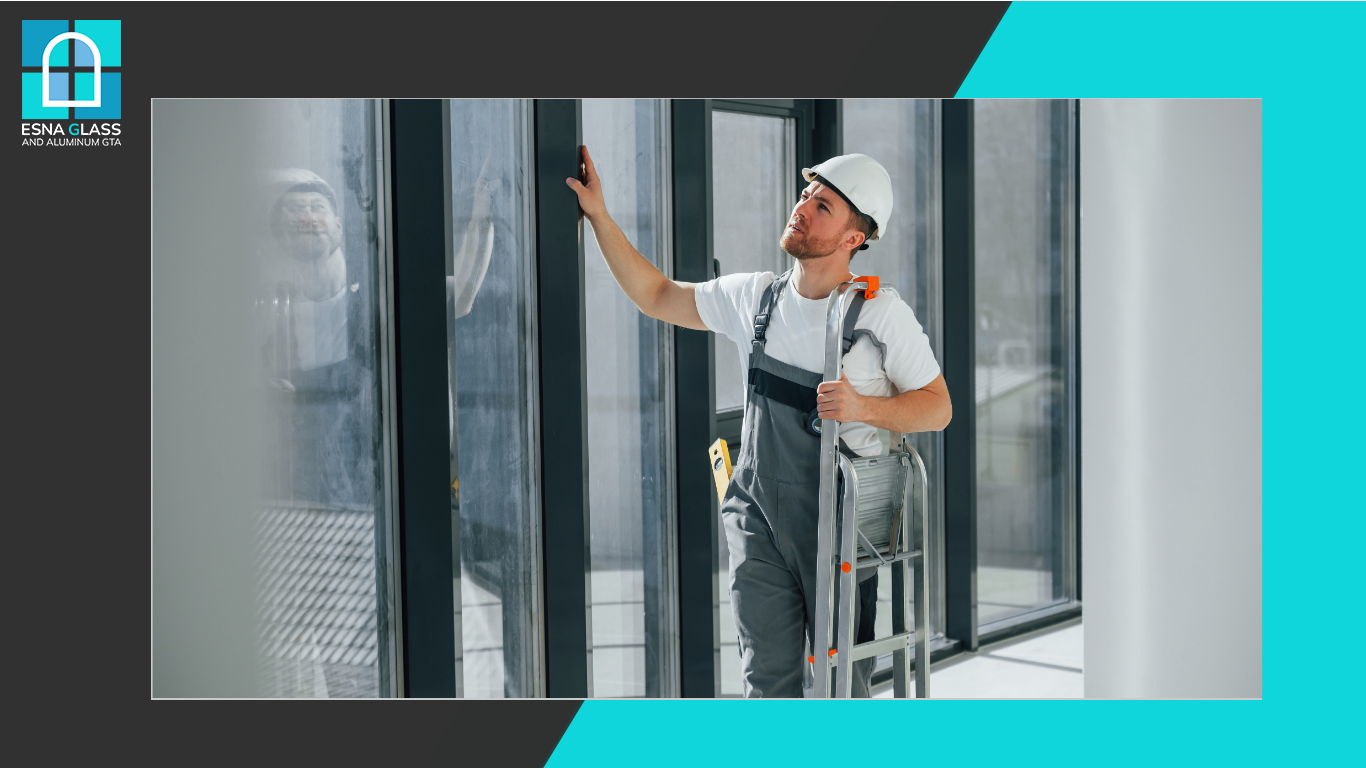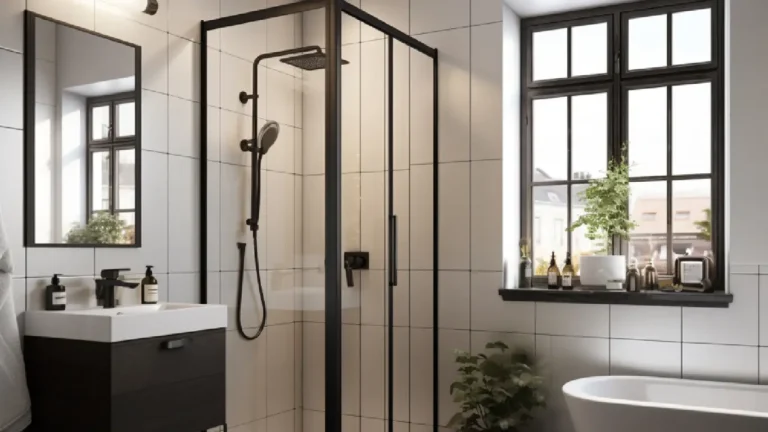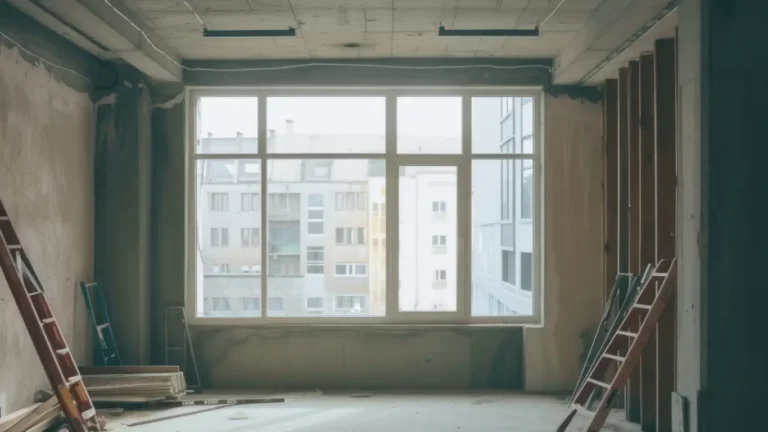Windows play a major part in establishing a pleasant and practical environment in commercial facilities. Commercial window installation extends beyond aesthetics to provide various benefits like energy efficiency, natural light, and better security. In this post, we will look at different features of commercial window installation and how they contribute to a comfortable and productive work environment.
What is commercial window?
A commercial window is a type of window designed for installation in business, retail, and hotel settings as opposed to domestic homes. These windows are built with the exceptional requirements of commercial areas, considering elements such as durability, energy efficiency, security, and aesthetics.
Commercial windows are often larger and more sturdy than residential windows to meet the increased scale of commercial structures. They come in a range of forms, materials, and configurations to fit diverse architectural designs and practical purposes.
These windows are frequently manufactured from materials like aluminum, vinyl, or composite frames, which offer strength, lifespan, and low maintenance. They may feature specialty glass types, such as laminated or insulated glass, to promote energy efficiency, limit noise transmission, and improve security.
Types of Commercial Windows
Before we get into the installation process, let’s first go through the many types of commercial windows available. Commercial windows are available in a variety of styles, each with its own set of features and functionality. Some examples of frequent types are:
- Fixed Windows: These are fixed windows that do not open or close. They are frequently utilized to enhance views and natural light.
- Sliding Windows: Sliding windows can be opened and closed horizontally, allowing for convenient ventilation and access. They are a common choice in commercial situations with limited space.
- Casement Windows: Casement windows have one side hinged and swing outward like doors. They are commonly utilized in offices and retail settings because they provide good ventilation.
- Awning Windows: Awning windows are hinged at the top and open outward from the bottom, giving the appearance of an awning. They provide excellent ventilation and are appropriate for situations where privacy is an issue.
- Double-Hung Windows: These windows have two sashes that can be operated separately. They give ventilation and cleaning flexibility.
Understanding the many types of commercial windows allows you to select the best option for your business area.
Benefits of Commercial Window Installation
Proper commercial window installation can provide various benefits to your company. Let’s look at some of the main advantages:
- Energy Efficiency: Commercial windows are designed to reduce heat transmission and thus improve energy efficiency. They aid in the maintenance of appropriate indoor temperatures while minimizing the dependency on heating and cooling systems, resulting in energy savings.
- Natural Light and Views: Commercial windows let in plenty of natural light, providing a pleasant and appealing ambiance. Increased productivity and well-being have been linked to natural light. Furthermore, business windows offer views of the outside world, which can improve the entire ambiance.
- Noise Reduction: High-quality commercial windows reduce noise penetration from the outside environment. This feature is especially useful for businesses in congested urban regions or high-traffic areas.
- Enhanced Security: Commercial windows are built with security features to keep your business safe. Reinforced glass, laminated glass, and improved locking systems give an extra layer of security, discouraging potential intruders.
Commercial Window Installation Process
Commercial window installation entails numerous procedures to ensure a smooth and effective process. Here’s a rundown of the installation procedure:
- location Preparation: The installation team examines the location and prepares the work area by eliminating any barriers and ensuring that all necessary safety procedures are in place.
- Measuring and Ordering Windows: Accurate measurements are essential to ensuring that the windows fit perfectly. Professional installers take precise measurements and order windows that match the unique needs of your commercial space.
- Removing Existing Windows (if applicable): If existing windows are present, the installation team carefully removes them while taking care not to damage the surrounding building.
- Installation and Sealing: The new windows are securely placed to ensure appropriate fit and alignment. Installers utilize proper sealing procedures to avoid air and water leakage and maximize energy efficiency.

Commercial Glass Installers and Contractors
It is critical to engage with professional and dependable glass installers and contractors to ensure a successful business window installation. These experts are experts in the installation, repair, and maintenance of commercial windows. Consider the following things when hiring a commercial glass installer:
- expertise: Look for installers who have a documented track record and years of industry expertise. Experienced workers are more likely to produce high-quality results.
- Reputation: Check the glass installer’s reputation by reading customer reviews, comments, and ratings. A reputable installer will have positive comments from previous clients.
- Certifications and Licenses: Confirm that the installer has the required certifications and licenses for commercial window installations. This guarantees that industry standards and laws are met.
- Insurance: It is critical to hire installers that have liability insurance to protect your company from any damages or accidents that may occur during the installation process.
Working with expert glass installers and contractors guarantees that your commercial windows are properly installed, ensuring long-term functioning and aesthetic appeal.
Commercial Window Glazing
Glazing is an important part of commercial window installation because it adds insulation, soundproofing, and UV protection. Glazing is the technique of putting a transparent covering on the surface of a glass. Here are some important considerations to remember concerning commercial window glazing:
- Definition and Purpose: Glazing is the process of adding a layer of glass or film to windows to create an insulating barrier. This helps to reduce heat transfer, and noise and protects against dangerous UV rays.
- Glazing alternatives: There are several glazing alternatives available, including single glazing, double glazing, and low-emissivity (Low-E) glazing. Each variety has a different level of insulation and energy efficiency.
- Glazing Advantages: Glazing improves the performance of business windows by increasing thermal efficiency, decreasing condensation, and blocking damaging UV rays. It helps to save energy and improves occupant comfort.
Commercial Window Systems
Commercial window systems include the entire structure and window assembly components. Understanding the various types of window systems enables you to make educated judgments during the installation process. Commercial window systems that are regularly utilized include:
- Aluminum Frame Systems: Aluminum frames are lightweight, sturdy, and versatile. They are corrosion-resistant and have high strength and stability.
- Steel Frame Systems: Because steel frames are extremely sturdy, they are ideal for high-security applications. They improve structural integrity and can survive harsh weather conditions.
- Vinyl Frame Systems: Vinyl frames are well-known for their energy efficiency and ease of maintenance. They are resistant to warping and fading and require little maintenance.
- Composite Frame Systems: Composite frames combine the benefits of diverse materials, such as wood and fiberglass. They offer durability, insulation, and visual appeal.
Commercial Window Frames
Window frames are critical components that support the glass and enable commercial windows’ stability and performance. Some important considerations for commercial window frames include:
- Window Frames Are Important: Window frames offer structural support, retain the glass in place, and contribute to the overall energy efficiency of the window system. They are critical in maintaining the installation’s integrity.
- Popular Commercial Window Frame Materials: Commercial window frames are made from a variety of materials, each with its own set of properties. Aluminum, vinyl, wood, and fiberglass are all popular materials. Each material has a unique combination of durability, beauty, and thermal performance.
Choosing the right window frame material involves considering factors such as climate, maintenance requirements, cost, and design preferences.
Conclusion
Commercial window installation is an important part of building a pleasant, efficient, and visually pleasing business environment. Each factor adds to the overall performance and appeal of commercial windows, from the types of windows to the installation procedure, glass selections, and frame materials. Businesses can benefit from energy efficiency, natural light, noise reduction, and better security by investing in skilled installation and using high-quality materials.
Join us now and be at the forefront of the glass revolution. Visit our website, explore our products, and connect with our team to discover how Esna Glass can transform your world. The future is clear—Esna Glass is here to lead the way.
FAQs
- How long does commercial window installation take?
- The length of time it takes to install commercial windows is determined by several factors, including the number of windows, the complexity of the project, and the availability of resources. It can take anywhere from a few days to a few weeks in most cases.
- Are commercial windows more expensive than residential windows?
- Commercial windows are often constructed to fulfill greater performance criteria and may involve more sophisticated installation techniques. This can make them slightly more expensive than residential windows. However, the cost varies based on criteria such as window type, size, and customization options.
- Can I install commercial windows myself?
- Installing commercial windows takes particular knowledge and expertise. It is recommended to contact expert glass installers that have experience in commercial window installations to ensure correct installation and optimal performance.
- Do commercial windows require maintenance?
- Like any other component of a structure, commercial windows require regular maintenance to preserve their longevity and performance. Routine cleaning, checking of seals and hardware, and addressing any faults promptly are vital for the appropriate maintenance of commercial windows.
- What factors affect the lifespan of commercial windows?
- The quality of the materials used, proper installation, regular maintenance, exposure to adverse weather conditions, and the level of wear and strain all contribute to the longevity of commercial windows. High-quality windows, competent installation, and attentive maintenance procedures can help increase the lifespan of commercial windows.




